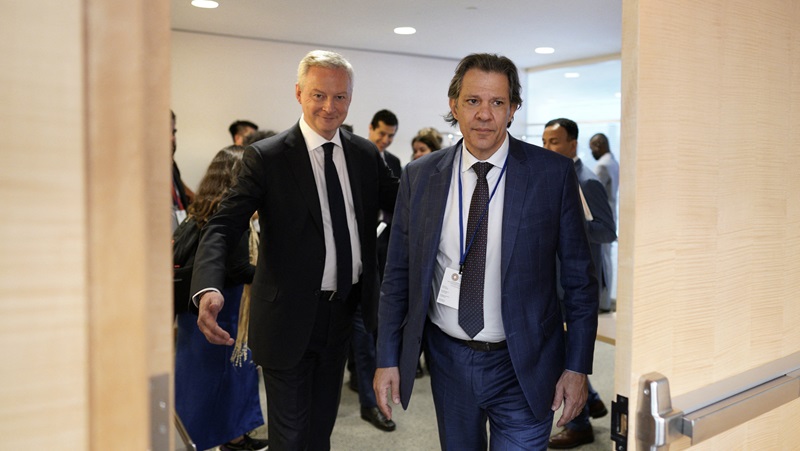Brazil and France want the G20 to get behind a global minimum tax on billionaires’ wealth, also backed by IMF chief, but Germany rejects the idea
The finance ministers of Brazil and France pushed this week for a tax on US-dollar billionaires of at least 2% of their wealth each year, with the $250 billion it could raise going to tackle poverty, hunger and climate change.
Brazil’s Fernando Haddad and France’s Bruno Le Maire promoted their proposal at the Spring Meetings of the World Bank and International Monetary Fund (IMF) in Washington, alongside IMF head Kristalina Georgieva and Kenyan finance minister Njuguna Ndung’u.
“In a world where economic activities are increasingly transnational, we have to find new and creative ways to tax these activities [and] thus direct the revenues to common global endeavours such as ending hunger and poverty and fighting climate change,” said Haddad.
He called on world leaders to show “political courage”, embrace “innovative solutions based on evidence” and give their people “hope”. “Without courage, there’s no good politics that can be done,” he said.
Speaking next at a briefing in Washington, Le Maire said overhauling the taxation system was “a matter of efficiency and a matter of justice”, and that a levy on the super-rich should follow already-agreed measures for a digital tax and global minimum corporation tax. “Everybody has to pay his fair share of taxation,” he added.
Canadian minister vows to fight attempts to weaken plastic pollution treaty
French economist Gabriel Zucman is drawing up a proposal for a billionaires tax that will be presented to G20 finance ministers and central bankers when they meet in the Brazilian city of Rio De Janeiro in July.
Haddad, whose government will host that meeting as G20 chair, said he wanted the Group of 20 big economies to issue a statement of support. Le Maire said he hoped the wealth tax would be in place by 2027, ten years after reform of the international taxation system began.
But at a separate press conference in Washington this week, Germany’s finance minister Christian Lindner rejected the proposal. “We do not think it is suitable,” he said. “We have an appropriate taxation of income.” Lindner is from the free-market Free Democratic Party, part of Germany’s governing coalition with the centre-left and Greens.
Who will spend it?
Zucman said not all countries needed to agree to a measure for it to be implemented. If some countries don’t tax billionaires, others can tax them more to make up for it, he said, adding that is how the global minimum corporation tax rate of 15% – which went into effect this year – works.
While Haddad spoke of tackling hunger and climate change, it is not yet clear who would be in charge of spending the money raised from billionaires or what it would be spent on.

Esther Duflo in 2009 (Photos: PopTech)
Esther Duflo, another French economist who addressed G20 ministers this week, told journalists the money should be given to developing countries to deal with climate change.
The best use, she said, is for the money to go to poor people before a climate shock like a heatwave hits, for their communities to protect them through measures like air-conditioned public spaces, and to governments for reinsurance against climate disasters.
From academia to politics
A billionaires tax has long been pushed by progressive economists like Zucman and Joseph Stiglitz. But it has been taken from academia onto the political agenda by
Read More

